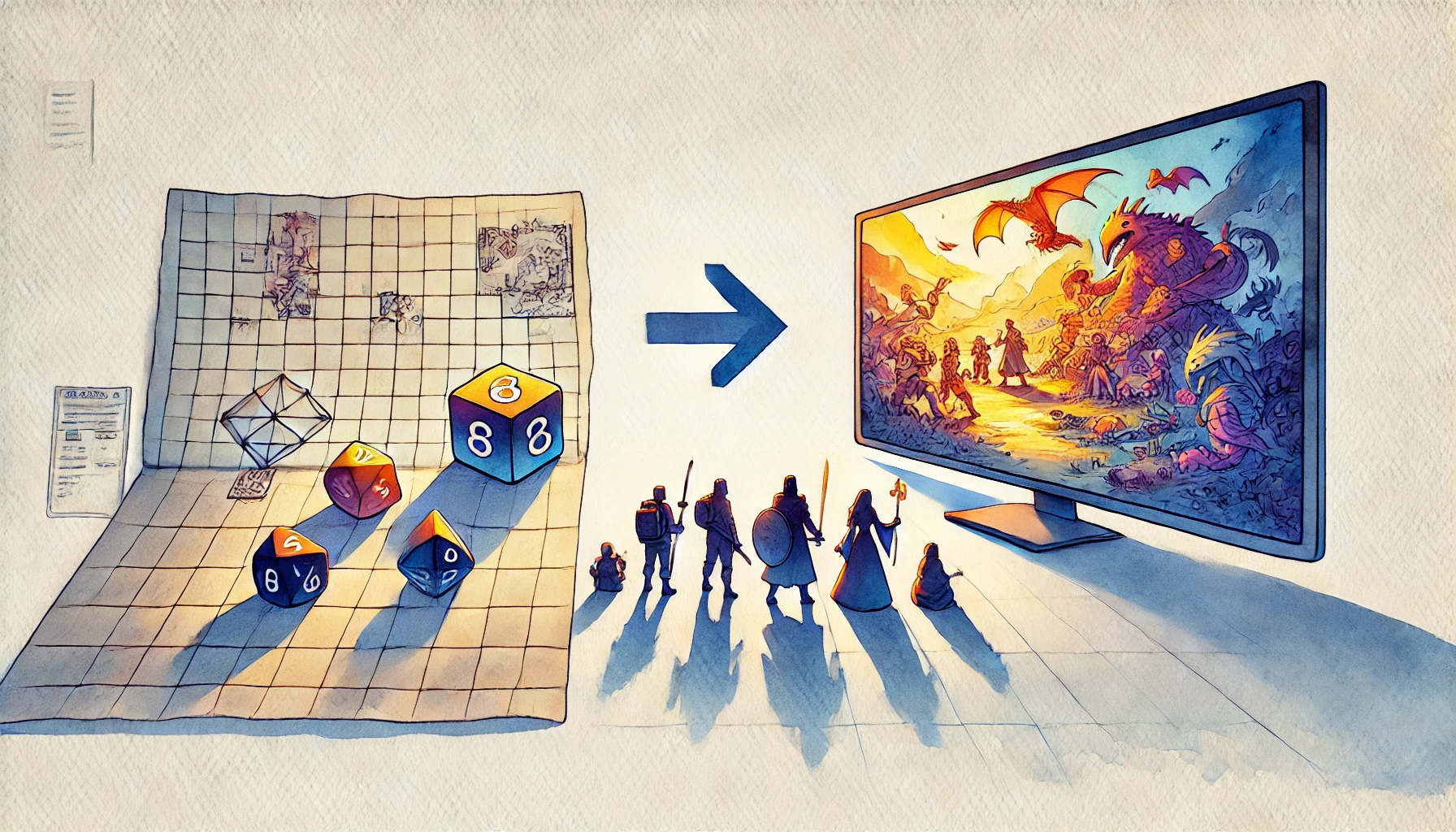Role-playing games have undergone a remarkable transformation since their humble beginnings in the 1970s. What started as text-based adventures and simple pixelated quests has blossomed into a diverse and sophisticated genre, offering players immersive worlds, complex characters, and narratives that rival the depth and complexity of novels and films. From the early days of Dungeons & Dragons-inspired computer games to today’s sprawling open-world epics, RPGs have consistently pushed the boundaries of interactive storytelling. This evolution reflects not just advancements in technology, but also changing player expectations, cultural shifts, and the maturing of game design as an art form.
As we embark on this journey through the history of RPG storytelling, we’ll explore how narrative techniques have evolved, examine the impact of technological innovations, and consider the changing role of the player in shaping these digital tales. We’ll look at how early games laid the foundation for future innovations, how Japanese and Western RPGs diverged and influenced each other, and how modern titles are blending genres and challenging our notions of what an RPG can be. From the text parser prompts of Zork to the branching dialogues of Mass Effect, from the predefined heroes of Final Fantasy to the blank-slate protagonists of Skyrim, we’ll see how RPGs have grown from simple power fantasies into complex vehicles for exploration, expression, and emotional engagement.
The Evolution of RPG Storytelling
The Early Days: Kill the Dragon, Save the World
In the 1980s, RPG plots were as straightforward as a sword to a slime. You’d get a quest, fight some monsters, and eventually face off against the big bad evil guy. Games like the original Final Fantasy and Dragon Quest laid the groundwork, but their stories were often just window dressing for the gameplay.
“I still remember playing the first Dragon Quest,” says Sarah Chen, a long-time RPG fan. “The plot was basically ‘go kill the Dragonlord.’ But man, it felt epic at the time!”
These early games set the stage for what was to come, introducing players to the idea of becoming the hero in their own adventure.
The Rise of the NPCs
As games grew more complex, so did the cast of characters populating these digital worlds. Non-player characters (NPCs) evolved from simple quest-givers to individuals with their own personalities and backstories. This shift added depth to the game worlds and gave players more reasons to care about their virtual adventures.
The 90s: Enter the Novel
As technology improved, so did storytelling. Suddenly, RPGs were tackling complex themes and featuring casts of characters with actual personalities. Final Fantasy VI shocked players with its nihilistic villain, Kefka, while Chrono Trigger wove a time-traveling epic that still holds up today.
This era also saw the rise of Western RPGs like Baldur’s Gate, bringing deeper character customization and branching narratives to the table. Players could finally shape their own stories, not just follow a preset path.
The Impact of CD-ROM Technology
The advent of CD-ROM technology allowed for more storage space, which in turn enabled developers to include more text, voice acting, and pre-rendered cutscenes. This technological leap forward opened new avenues for storytelling, allowing for more cinematic experiences within the RPG framework.
The New Millennium: Cinematic Storytelling
The PlayStation 2 era ushered in a new age of cinematic storytelling. Games like Final Fantasy X and Metal Gear Solid 2 blurred the line between games and movies, with high-quality cutscenes and voice acting bringing characters to life like never before.
Western RPGs continued to evolve too. Bioware’s Knights of the Old Republic and Mass Effect series let players make choices that genuinely impacted the story, creating a sense of agency that’s now a staple of the genre.
The Role of Voice Acting
With improved audio capabilities, voice acting became a crucial element in RPG storytelling. No longer limited to text boxes, characters could express emotion through tone and inflection, adding another layer of depth to the narrative experience.
Modern Times: Open Worlds and Player Choice
Today’s RPGs often drop players into vast open worlds, letting them tackle stories at their own pace. Games like The Witcher 3 and Elden Ring prove that epic narratives can coexist with player freedom.
We’re also seeing a rise in RPGs that challenge traditional storytelling. Undertale subverts expectations at every turn, while Disco Elysium ditches combat entirely in favor of a deep, narrative-driven experience.
“Modern RPGs give us the chance to really live in these worlds,” explains game designer Alex Rodriguez. “It’s not just about the main quest anymore. Every side story and NPC interaction adds to the richness of the experience.”
The Influence of Player Choice
Player agency has become a cornerstone of modern RPG design. Choices made throughout the game can have far-reaching consequences, affecting everything from character relationships to the fate of entire civilizations. This level of interactivity has raised the bar for what players expect from RPG narratives.
The Future of RPG Storytelling
As we look to the horizon, the future of RPG storytelling seems bright with possibility. Advancements in technology continue to push the boundaries of what’s possible in interactive storytelling.
The Promise of AI and Procedural Generation
With improvements in AI and procedural generation, we might see truly dynamic stories that react to player choices in unprecedented ways. Imagine a world where every playthrough is unique, with NPCs and plotlines that adapt in real-time to your decisions.
Virtual and Augmented Reality
The rise of VR and AR technologies opens up new frontiers for immersive storytelling. These technologies could literally put us inside these fantastical worlds, blurring the line between player and character in ways we’ve only dreamed of before.
One thing’s for sure – RPG stories will keep evolving, surprising us, and reminding us why we fell in love with the genre in the first place. As technology advances and new storytelling techniques emerge, we can look forward to even more captivating and immersive RPG experiences in the years to come.

